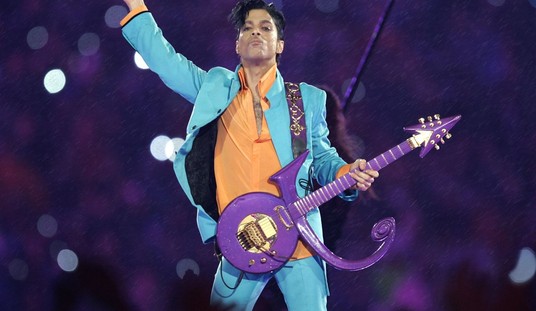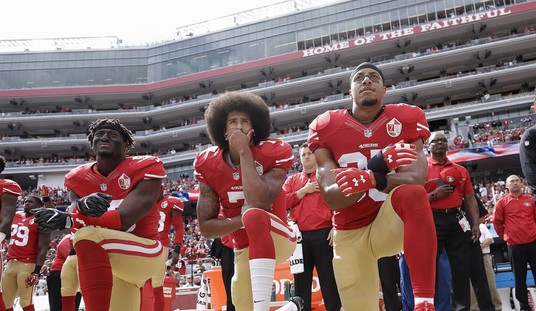According to one Lauren Sandler writing in the Huffington Post, the problem with foreign policy under President Donald Trump is that it’s just so masculine. Which is why the firing of now-former Secretary of State Rex Tillerson was…well, I’m not exactly sure what Ms. Sandler’s point actually is on the subject because I’m not sure she’s actually sure what her point is on the subject.
In an effort to argue (I think) that foreign policy could do with an injection of femininity’s “biological aversion to war”, Sandler lays out an argument that all men are masculine and foreign policy is dominated by men, and therefore foreign policy is too masculine.
I think.
Because she then counters the idea that women are averse to war. Pretty convincingly, too.
Tara McKelvey’s excellent book about women as torturers certainly makes the case for the female capacity for aggression in the face of security threats, complicating Fukuyama’s problematic reduction of humans to biological sex differences. We can look to Margaret Thatcher’s own taste for invasion to see how female leaders can champion force. “This is not about hormones,” Enloe wrote. “It is about the male politician’s angst over not appearing ‘manly.’ This, in turn, is about American political culture.” Foreign policy’s masculinity problem is written not into our DNA, but into our society.
Oh, there it is. It’s not actually about biological genders and the associated testosterone that goes along with being male. It’s written into our society, this aggressiveness that dominates foreign policy (except when it isn’t because of women like Margaret Thatcher and, although she doesn’t mention it, Theresa May. Or Condi Rice. Or Kirstjen Nielsen. Or even Ivanka Trump. Except that it still actually is, because it doesn’t matter that they’re women. I think.)
And because it’s written into our society and not our genes, we can control it and change it. We can all “lead from behind” if we want to (which is still the most hilarious contradiction in terms).
There’s a new masculinity to be had, and we can harness it and nurture it in our future foreign policy leaders.
In some ways, this shift is the result of the executive director Matthew Theodores’ very productive midlife crisis. Until 2012, he was general manager for marketing and strategy at a division of Microsoft. Unfulfilled, he started looking for not-for-profit organizations to connect with and stumbled into a board position at Boys to Men.
Since he had three boys of his own, then ages six, eight, and eleven, it’s no surprise the work quickly got under his skin, or that he saw the potential impact of working with younger boys.
MBTM adapted its high school curriculum for a middle school audience and tested it during the 2015-2016 academic year, reaching just over 500 boys in southern Maine. It tuned it up accordingly, adding more periods of physical activity and centering emotional literacy as the heart of the program, and wound up with a four-hour curriculum. The program is usually delivered one hour at a time over the course of four weeks at participating schools.
The course begins with the “gender box” exercise that’s a hallmark of all MBTM programs. The idea is simple: the group leader draws a big box on the chalkboard, and the boys brainstorm stereotypes of masculinity. All of those go inside the box. Then they discuss what happens if a guy tries to behave in a way that’s not described in the box. Those punishments and threats hover around the outside of the box. The completed visual serves as a jumping off point to discuss how confining traditional masculinity can be and how harmful to both boys and girls, both men and women.
Never mind that programs like this, for any good they might do, start out with the presupposition that “traditional masculinity” is harmful and something that needs to be changed, which is a pretty brutal message to send to kids. It amounts to elementary school emasculation. These boys are being taught that their innate boy-ness needs to be addressed and tamped down.
And never mind that young men today are reportedly less physically strong than their own fathers — that’s only one generation removed — and what that might mean should they be forced to defend themselves — or anything they care about — in a war (which is, after all, something foreign policy concerns itself with).
And never mind that, as Sandler notes, even if the U.S. decided to go beta-male, her enemies surely won’t (and, Ms. Sandler, bombs dropped from a place of insecurity still kill).
Of course, what makes our situation even more dangerous is that it’s not just Trump who is operating from a place of defensive masculinity. “From the outside, it is easy to underestimate how much of North Korea’s threats and bizarre expressions of aggression reflect its sense of vulnerability and wounded pride,” Evan Osnos wrote in The New Yorker this week. It’s essentially a therapist’s diagnosis of the pain underlying toxic manhood.
Toxic masculinity is definitely the problem in foreign policy. Sure thing. Even if the Trump nominee who has been accused lately of having a penchant for the brutal is, in fact, a woman.
I’m sure if the U.S. just dropped their guard and held their hands out and invited Putin in for a beer (oh wait. That’s pretty masculine. Invited him in for tea.) everything would be just fine.













Join the conversation as a VIP Member